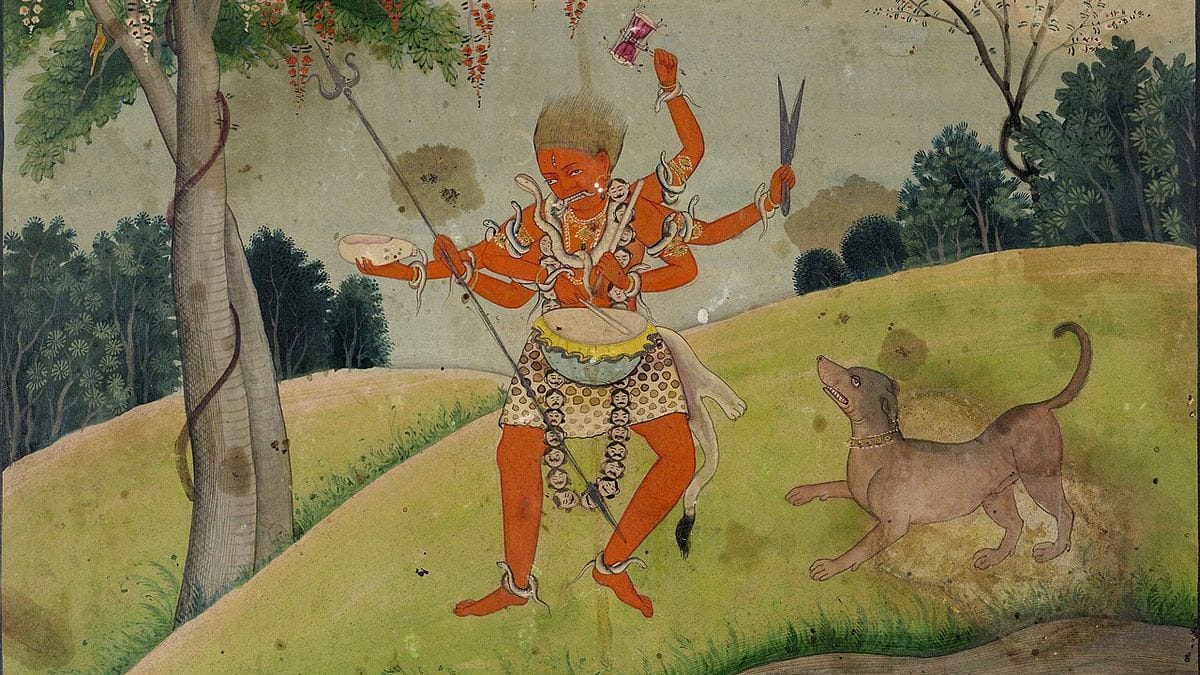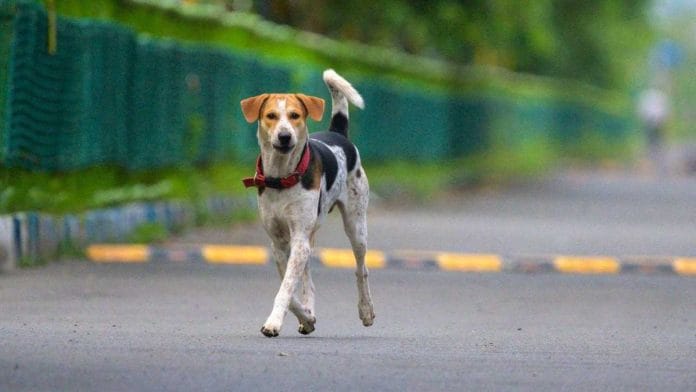As someone who belongs to a family steeped in the Hindu values of dharma, karma, and daan, I was rather dismayed to read the Supreme Court’s 11 August order regarding stray dogs. The court directed the authorities to round up all street dogs in the National Capital Region and dump them in non-existent animal shelters. I have utmost empathy for the victims of stray dog attacks, and am devastated when videos of children being viciously mauled by dogs storm social media. But I believe that there are more humane solutions to the much–debated issue.
In our culture, we are taught to engage with all living beings compassionately and empathetically. Mass capture and culling of so-called free-range dogs is not the way of dharma. I am pleased to note that on 22 August, a three-judge bench of the Supreme Court, led by Justice Vikram Nath, has revised its contentious order and directed the authorities to return the dogs, after sterilisation and vaccination, to their original habitat.
Compassion and peaceful cohabitation with animals are ingrained in the Indian value system. Even the Constitution of India mandates that all citizens of India have a fundamental duty under Article 51A (g) to be compassionate toward animals. A kind and humane solution needs to be found for the rising conflict between man and free–range animals.
Compassion for animals in Hindu scriptures
Since time immemorial, Hindus have been taught to treat all living beings with respect and compassion. The Bhagavata Purana, in verse 14.7.9, states:
मृगोष्ट्रखरमर्काखुसरीसृप्खगमक्षिका: ।
आत्मन: पुत्रवत् पश्येत्तैरेषामन्तरं कियत् ॥ ९ ॥
“One should treat animals such as deer, camels, asses, monkeys, mice, snakes, birds, and flies exactly like one’s own son. How little difference there actually is between children and these innocent animals.”
Krishna has dictated that we must treat all animals like our own children and that we should not discriminate against other living beings. It is bad karma in every aspect. In fact, the followers of the Digambar sect of Jainism are known to sweep the road ahead of themselves as they walk to avoid squashing insects on accident.
Some of the earliest references to human-canine attachment can be found in the Mahabharata. Everyone has heard the story of Yudhishthira on his final journey, when his four brothers and wife fall dead on their final journey, and his only companion until he reaches the gates of heaven is a dog, who is actually Dharma in disguise.
When Yudhishthira is met by Indra at the gates of heaven, Indra refuses to allow the impure dog inside. But Yudhishthira refuses to abandon the loyal dog who accompanied him through the arduous journey, and descends temporarily into hell through the Yamdwar.
It is apparent that the dog is an essential part of Hinduism. Since we cater to the belief that souls reincarnate, no one species then has a greater right on the earth than others. Mother Earth belongs to all.
Also read: Stray dogs to SIR voter lists, solution lies in tradeoffs
Animals in Hindu pantheons
Kala Bhairava, who is believed to be an incarnation of Shiva, has a special fondness for dogs. It is Bhairava’s ride. The deity stands at the gates of Kashi, protecting the road to heaven and preventing the entry of evil forces. Interpreted differently, Bhairava, along with his dog, protects human beings from not only external evil but also from internal demons of lust, greed, hate, and anger.

Dattatreya, said to be a joint incarnation of Brahma, Vishnu, and Shiva, is worshipped for his simplicity and kindness. He is always depicted seated with a cow, the symbol of the eternal mother, and four dogs. The dogs are said to represent the four vedas: Rigveda, Samveda, Yajurveda, and Atharveda.
Durga is always depicted riding her faithful steed, the majestic lion. It symbolises heroism, strength, and the power to defeat evil. Ganesha, the son of Shiva and Parvati, has the head of an elephant. Elephants are considered a sacred and majestic animal in India, often associated with temples.
Hanuman, with his vanar sena (army of monkeys), is the epitome of strength, loyalty, and service due to his adoration for Rama. Monkeys are considered sacred in both Hindu and Buddhist traditions, and are worshipped throughout India, with several temples dedicated to Hanuman. Most devout Indians will ensure that a tribe of monkeys passing by their home is well fed.
Also read: Dogs built human civilisation. Calling them a menace now is betrayal
Supreme Court directions
The banishment of stray dogs to unmonitored shelters, where they would have likely remained in inhumane conditions, has been kept in abeyance. This is a major win for animal lovers and non–animal lovers alike, as compassion and humanity have prevailed. The Supreme Court has, however, strictly directed that dogs need to be sterilised, dewormed, and vaccinated.
Rabid and aggressive dogs are not to be returned to the streets, where they might compromise the safety of humans. It is also worth investigating when and under which government veterinary hospitals in Delhi were shut down, and when the privatisation of the ABC programme began. We know the precise outcome of these actions. As part of urban planning, veterinary hospitals deserve as much importance as hospitals catering to human needs.
The Supreme Court has also directed the authorities to create designated feeding areas in order to reduce human–canine conflict, while ensuring the safety of citizens and the compassionate feeding of dogs. “Municipal authorities shall forthwith commence an exercise for creating dedicated feeding spaces for the stray dogs in each municipal ward,” read the order.
Indiscriminate street feeding has been regulated under the order dated 22 August. “Under no condition shall the feeding of stray dogs on the streets be permitted. The persons found feeding the dogs on the streets in contravention of the above directions shall be liable to be proceeded against under the relevant legal framework,” the bench said.
While I laud the Supreme Court for issuing a benevolent and benign order in favour of street dogs, and by extension, other street animals, my favourite part of the order is the following direction: “The desirous animal lover/s shall be free to move the application to the concerned municipal body for adoption of the street dogs.”
The life of a street dog is one of strife and stress. I am proud to say that in the last 30 years, my family has never brought home a ‘pedigreed pet’. Rather, our beloved pets are all Indies and rescue dogs, lovingly adopted from the streets and given a happy home, where they get unconditional love. Mr Aman Lekhi has ‘walked the talk’ as far as his love for dogs is concerned.
I strongly urge readers and animal lovers to consider adopting an Indie from the street and giving them shelter and love. After all, compassion and cohabitation are the very tenets of Indian tradition.
Meenakashi Lekhi is a BJP leader, lawyer and social activist. Her X handle is @M_Lekhi. Views are personal.
(Edited by Prasanna Bachchhav)







Along with stray dogs and cows sang parivar should consider showing empathy towards the 2 legged indian muslims who have been demonised, lynched and made homeless( bulldoser raj) by the sangh supporters and members. This applies to indian celibrities and elites too.